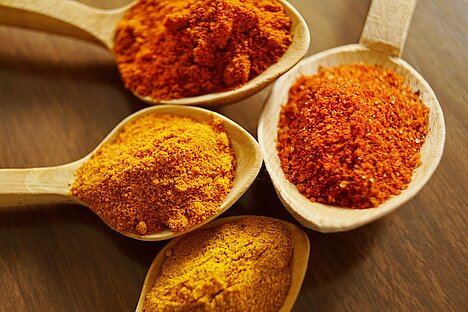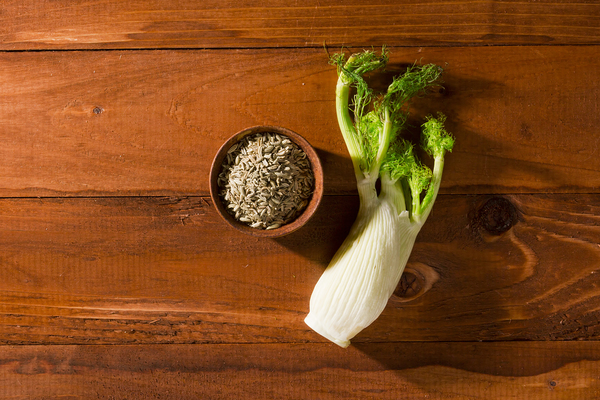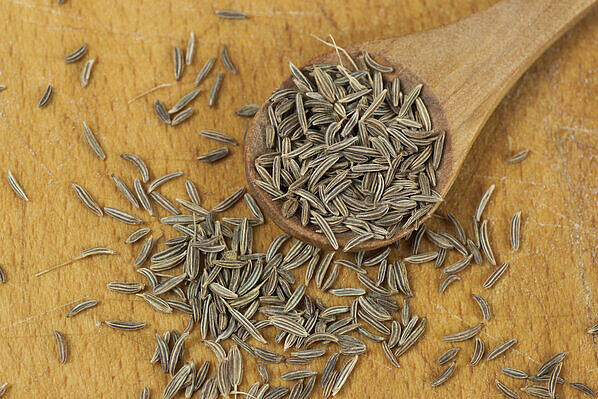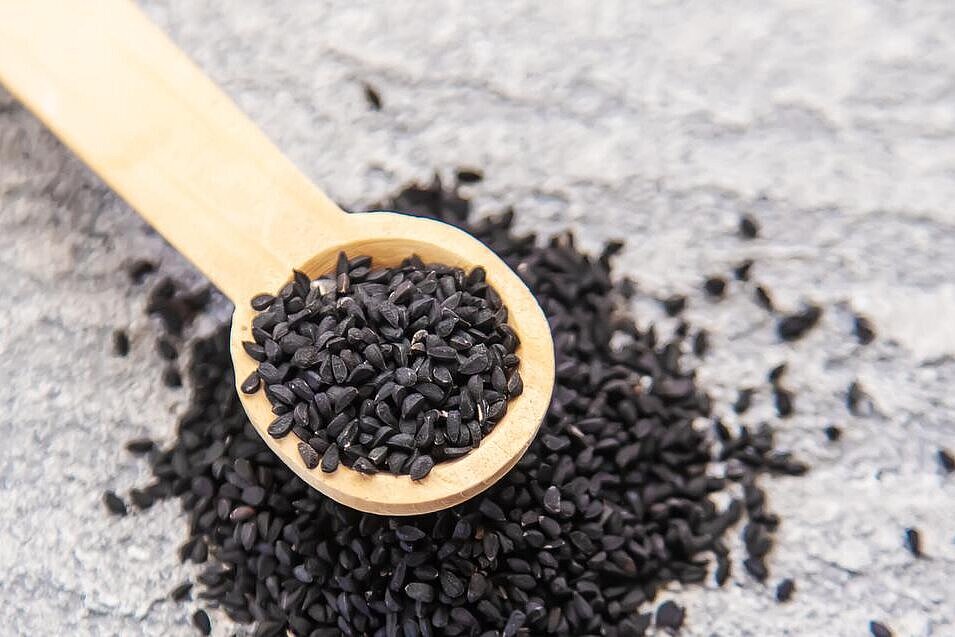Cumin

What is cumin?
Cumin is an annual plant that belongs to the umbellifer family. It has fine leaves and small white or pink flowers. The fruits of the plant are harvested and dried as seeds. These seeds have an intense, slightly bitter taste and a warm, spicy aroma.
Cumin originally comes from the Mediterranean region and the Middle East, but is now cultivated in many parts of the world. Cumin is mainly used as a spice in various dishes, such as curries, stews and bread. Cumin contains many valuable ingredients, such as iron, calcium, magnesium, vitamin B6 and antioxidants.
What are the benefits of cumin for dogs?
Cumin can also have some health benefits for dogs. On the one hand, cumin can aid digestion as it stimulates the production of gastric juices and reduces flatulence. Secondly, cumin can strengthen the immune system as it has antibacterial, antiviral and anti-inflammatory properties. Cumin can also support the respiratory tract as it has an expectorant effect and relieves coughs.
Cumin can also serve as a natural protection against parasites, as it can repel worms and fleas. To do this, you can regularly mix a small amount of cumin into your dog's food or offer him a cumin tea. Cumin can also help to stimulate the appetite if your dog is not eating well.
What are the disadvantages of cumin for dogs?
Cumin is generally well tolerated by dogs, but you should still only use it in moderation. Too much cumin can lead to stomach irritation or diarrhea. Cumin can also trigger allergic reactions in some dogs, such as skin rashes or itching. So if you notice that your dog is sensitive to cumin, it's better to leave it out.
Cumin can also interact with some medications, such as blood thinners or diabetes medication. So if your dog is taking such medications, you should talk to your vet before giving him cumin.
Cumin is an interesting ingredient for dogs that has something to offer in terms of both taste and health. You can add some cumin to your dog's food from time to time or offer him a cumin tea. However, make sure that you don't overdo it and that your dog doesn't suffer any side effects. This way you can offer your dog a change in his bowl and support his health.
If you notice any signs of hypersensitivity or poisoning in your dog, you should see your vet immediately. We are not a substitute for a vet, but we try to be as accurate as possible. Every dog reacts differently and we recommend you get a second opinion or consult your vet if in doubt.
Stay healthy and take good care of your four-legged friend!😊
Similar to Cumin
Coriander seeds are the dried fruits of the coriander plant, also known as Chinese parsley or cilantro. The plant belongs to the umbellifer family and is related to carrots, fennel and celery. The...
Fennel seeds have a number of positive properties that dogs can also benefit from. On the one hand, they contain many nutrients such as iron, calcium, magnesium, vitamin C and fiber. They also have...
Caraway (Carum carvi) is a plant from the umbellifer family, which also includes fennel, aniseed, coriander and carrots. Caraway grows on roadsides and meadows and has white to pink flowers that...
Black cumin (Nigella sativa) belongs to the buttercup family and has nothing to do with caraway or cumin, which we know as spices. The plant has blue or white flowers and produces small black seeds...



